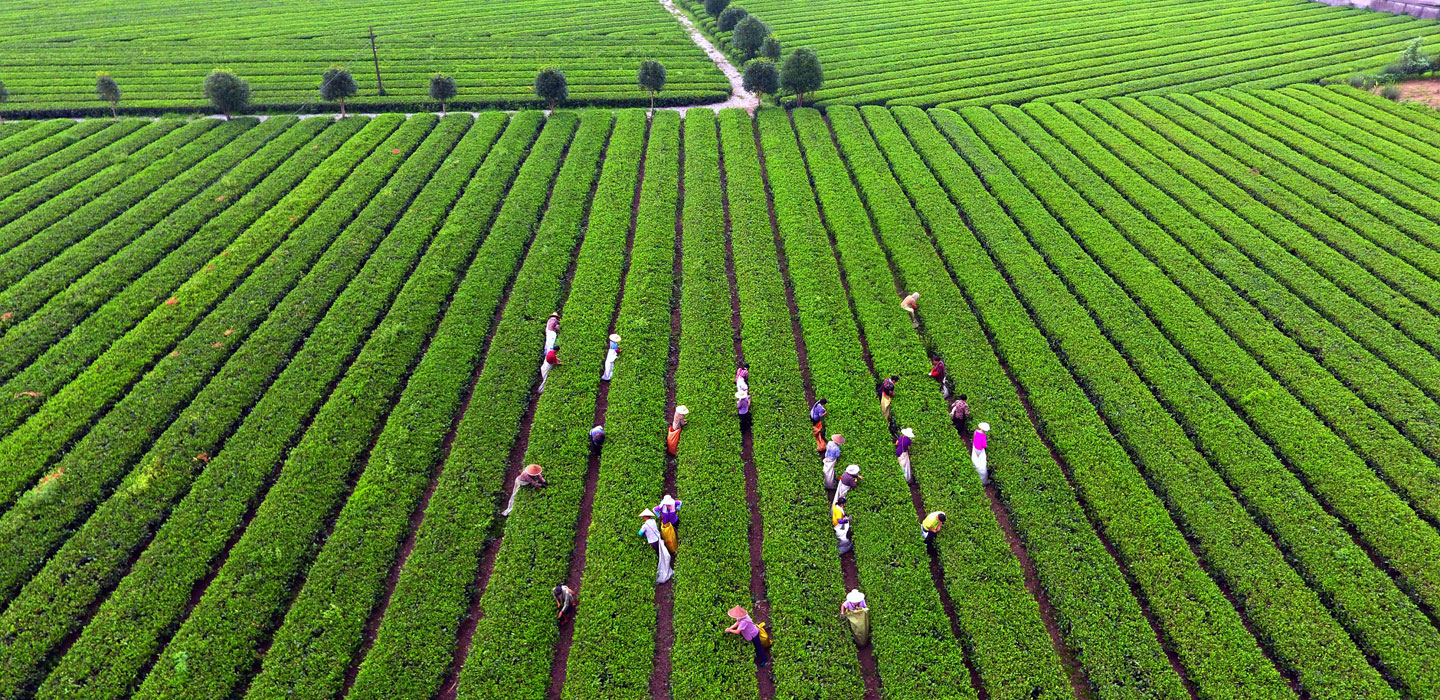40 years of IFAD-China cooperation: Celebrating the past, envisioning the future
IFAD Asset Request Portlet
ناشر الأصول
40 years of IFAD-China cooperation: Celebrating the past, envisioning the future
المقدر للقراءة دقيقة 7
IFAD and China are celebrating 40 years of cooperation.
IFAD was the first international finance institution to lend to China, with a loan to finance the Northern Pasture and Livestock Development Project in Inner Mongolia, Heilongjiang and Hebei provinces. Since then, IFAD has accompanied China on its journey to eliminate hunger and rural poverty and to develop rural areas.
Over the last four decades, IFAD has supported China’s development by providing financial resources and expertise, as well as by introducing innovations and best practices. Through its “first generation” of projects in the 1990s, IFAD established its reputation as one of the agencies that introduced a more participatory process to rural development in China. The RFSP initiative of the early 2000s contributed to China’s Rural Credit Cooperatives reform. In 2011, in partnership with WFP and the Chinese Academy of Agricultural Sciences, IFAD introduced the country’s first weather index–based insurance product. And most recently, the latest generation of projects has improved the chanyie fupin models, strengthening the capacity of cooperatives to include poor rural households and small-scale farmers in the agricultural industrialization process and bring them out of poverty.
Many technical innovations introduced by IFAD through its projects in China have been either replicated and scaled-up within the country or adopted by other countries. The use of plastic membranes as an agricultural technology, for example, was first introduced by IFAD in one specific location as part of a programme in South Gansu province, and it was later adopted extensively throughout the entire province. And biogas digester technology, introduced in China’s Guangxi Zhuang autonomous region in 2000 in partnership with the Government of China, was so successful that it has since been replicated in several African countries through IFAD-funded projects.
For 40 years, IFAD, in partnership with the Government, has worked in the poorest and most remote areas of the country, financing more than 30 projects worth US$3 billion. Our projects have contributed to building new roads to connect remote villages, rehabilitating irrigation systems, and improving land management. They have enhanced agricultural productivity by introducing more efficient technologies and improving the Government’s extension services. They have promoted more environmentally sustainable agricultural practices and increased farmers’ resilience to climate change.
Our projects have helped poor small-scale farmers gain greater access to finance and better links to markets. They’ve ensured that modern food value chains do not exclude poor rural farmers, but, on the contrary, ensure they are included in and can benefit from them. They have facilitated the establishment of thousands of “pro-poor” public-private partnerships around the country. Over all, our partnership with China has contributed to improving the lives and livelihoods of more than 20 million men and women, contributing to increasing their income, assets, food security, and empowering women and other vulnerable groups – as confirmed by various rigorous impact assessments.
Likewise, IFAD has greatly benefited from its partnership with China. China is not only one of the largest recipients of IFAD resources – it has progressively become one of the largest contributors to IFAD replenishments. Today, China is one of the most active members of our Executive Board, a strong supporter of IFAD’s ambitious reform agenda, and a champion of South-South Cooperation. China was instrumental in the establishment of IFAD’s South-South and Triangular Cooperation Facility.
However, as we look back and celebrate 40 years of successful cooperation, we should not miss the opportunity to also reflect on the future of our partnership. Ending absolute rural poverty is a remarkable achievement, but the path towards building a modern and prosperous society by the middle of the 21st century – China’s long-term goal – is not yet accomplished. Preventing those lifted out of poverty from falling back into poverty; protecting the most vulnerable; addressing inequalities, especially between rural and urban areas; revitalizing rural areas; and ensuring green development and carbon neutrality are just some of the challenges that China will face in the coming years.
IFAD stands ready to support China in addressing these challenges, seeking rural revitalization and pursuing its long-term development goals – as well as contributing to accelerating the achievement of the Sustainable Development Goals globally – as it has supported China in its fight against food insecurity and rural poverty over the past 40 years.
The steadfast commitment from IFAD will remain. The forms and modalities of cooperation may, however, evolve and adapt to the changing context.
China has been a food-secure country for several years, and has recently announced it has eradicated extreme rural poverty. Having addressed its most pressing domestic development challenges – poverty and hunger – China now recognizes its increased role and responsibility in the global development arena. China is committed to fulfilling its duties as a major country to global development, contributing to the implementation of Agenda 2030, and to responding, together with the international community, to other emerging global development challenges.
IFAD has also changed over the last 40 years. It is now an international financial and knowledge institution, increasingly decentralized – and with a new operational model that embodies an increased focus on policy engagement, partnership building, and South-South and Triangular Cooperation.
It is around these strategic dimensions that I foresee the IFAD-China cooperation evolving and deepening: strategic engagement, policy dialogue, partnership building, global advocacy, knowledge sharing and South-South cooperation, and joint contribution to the global development agenda.
I personally am very much looking forward to the next four decades of our partnership.
Learn more about IFAD’s work with China.
تاريخ النشر: 14 يونيو 2022